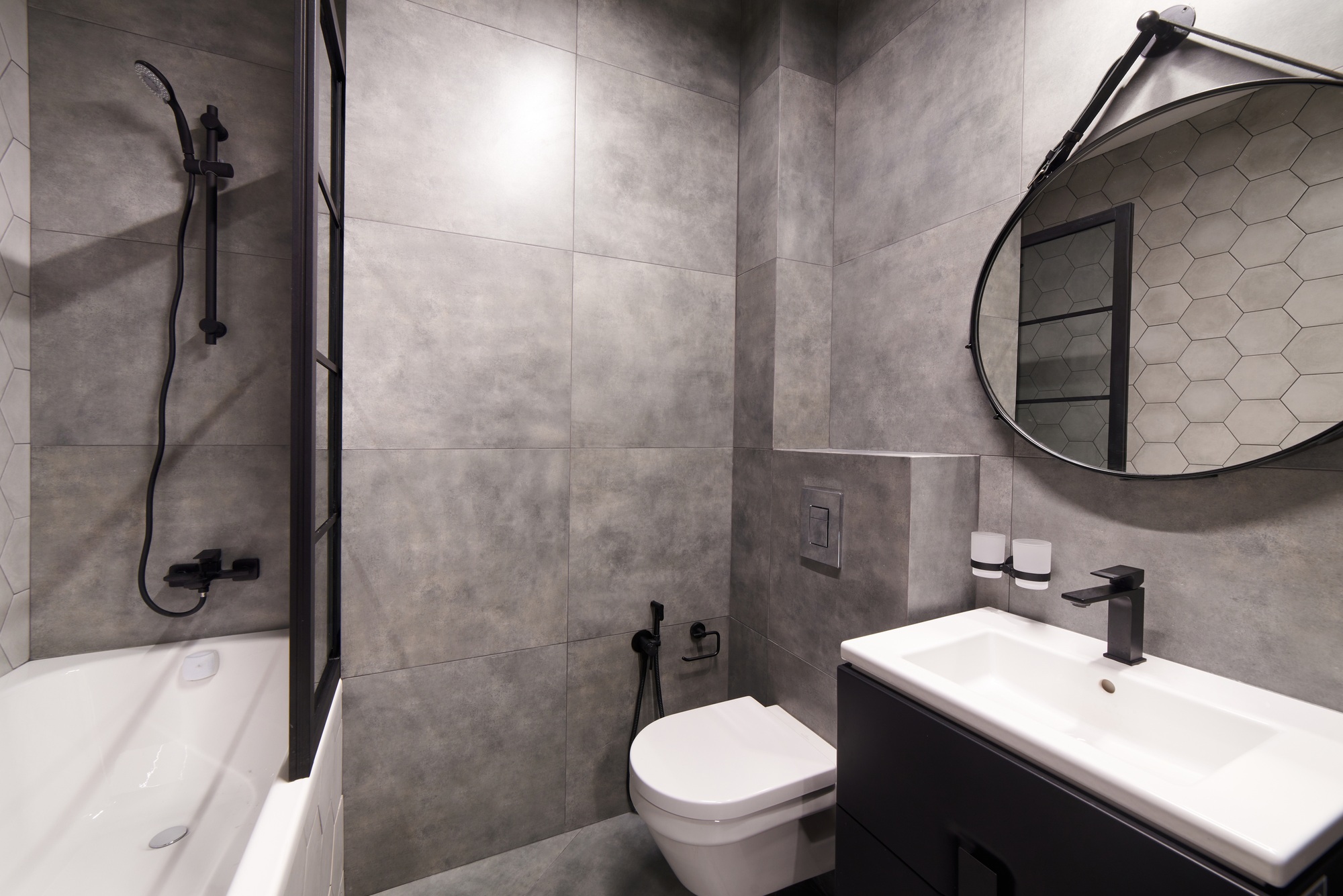Granite is strong, durable and beautiful, making it a top choice for kitchen countertops. But many homeowners come to us with the same question. In this blog, we take a deep dive into the answer.
Homeowners often ask us: Should I seal my granite countertops?
While some resources may claim that you don’t need to seal granite countertops, we definitely recommend it. Let’s see why by examining the properties of granite.
What is Granite?
Granite is a natural, igneous rock consisting mainly of quartz, mica and feldspar. It’s extremely durable and not easily chipped or damaged by heat. Hundreds of colors can be found naturally, which makes granite a perfect design element to homes or buildings.
A common granite myth is that granite countertops are high maintenance. In reality, granite is stain, scratch, heat and chemical resistant. But, just because it’s easy to maintain doesn’t mean it requires no maintenance at all. It requires simple daily cleaning and, yes – sealing.
This is because, like other natural stones, granite countertops have some level of porosity. Generally, lighter color stones are more porous than darker ones. Porosity allows moisture to be absorbed into the material if left untreated.
Should I Seal My Granite Countertops?
The short answer is yes, you should seal your granite countertops.
Even though granite has stain and scratch resisting qualities, things like cooking oil, red wine, grease and other spills can soak into your countertops if not removed in a timely manner. Possibly discoloring the natural stone and making the removal of these stains difficult or impossible.
You can prevent this by periodically sealing your countertops. When sealed, liquids resist penetrating into the stone. However, it’s still important to quickly clean up any spills, especially if it’s been more than a few years since you’ve sealed your countertops.
How Often Should I Seal My Granite Countertops?
If you’ve had your granite countertops for a while or just had them installed, you might be wondering how you can tell if they need re-sealing. The quickest way to determine this is by trying a simple water test.
The Water Test
Pour about a quarter cup of water on the surface of your countertops.
If the water absorbs into the countertop quickly (the granite darkens), then it is time to reseal.
But if the water only absorbs after five minutes or more, you may not need to seal right away.
Usually, your countertop supplier will seal your new countertops after the fabrication process. Some countertop suppliers will include a basic sealant application after they finish the initial installation. If you’re unsure if you have sealed countertops, be sure to ask (or try the water test).
Other factors that inform how often you should seal your countertops include:
- How often or in what capacity you use your countertops: The more you use your countertops, the more you should seal the granite to protect them from spills.
- How light or dark the granite is: Lighter granite is more porous, thus more susceptible to damage from spills.
- What you use to clean them: Harsh cleaning solutions, like vinegar, lemon/lime or ammonia/bleach-based products, will weaken your countertops’ sealant over time. We always recommend using warm water, mild dish soap and a washcloth for daily cleaning. Granite only cleaners work fine, but they’re not necessary.
- The type of sealant you use: Some sealers have a solvent base, which can work for several years before you have to re-seal.
How to Seal Granite Countertops
Another common misconception is that sealing granite countertops is difficult, making it an undesirable stone to own. This is far from the truth. Granite is among the top materials homeowners purchase for their countertops – and having to seal it once or twice a year has not deterred most homeowners!
This is because it can be done relatively quickly, in just minutes rather than hours. Be sure to follow the precise instructions on your selected sealant product. But, generally, here are the steps you can expect:
- Clear off your countertops and clean them with mild soap and a washcloth or microfiber towel.
- Let your countertops dry completely before sealing.
- Make sure you wear gloves when you’re ready to seal.
- Spray your selected sealer uniformly over the countertop.
- Repeat as needed to ensure multiple layers and thorough coverage, wiping off excess.
- Allow the countertops to rest. They should be completely sealed in 24 hours.
Conclusion
Despite common misconceptions, granite countertops are relatively low maintenance. Sealing might seem daunting at first, but your countertop supplier can help you and many suppliers offer recommended sealer for purchase at their facility. Plus, once they are sealed, they will be easier to clean and even much more hygienic.
With the right sealant and daily, soapy wipe downs, you can enjoy your granite countertops for years and years to come.
Browse our current granite inventory – or let us help you hand-pick your stone by scheduling time to visit our showroom!



